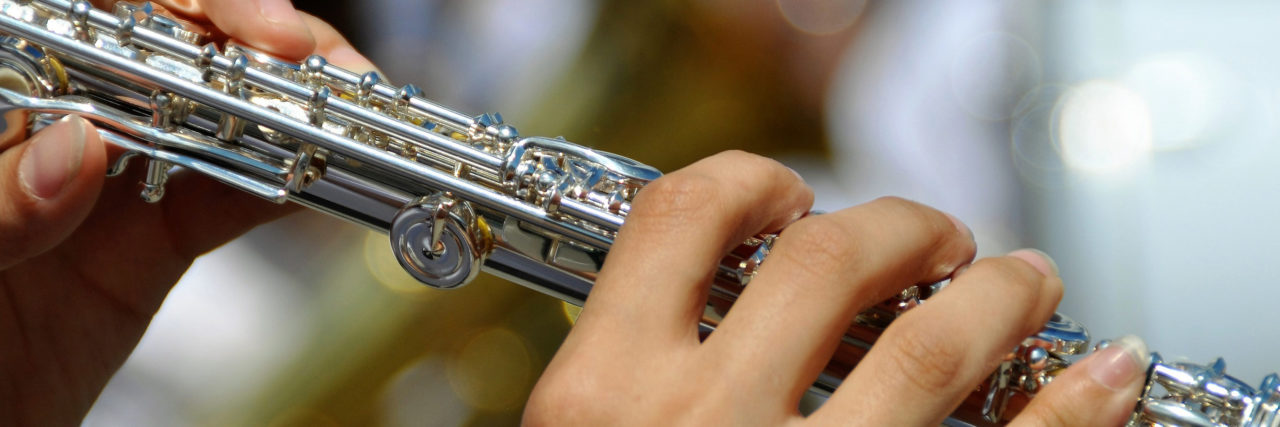How Talent and Intelligence Masked My ADHD
I’m a straight-A (or A-minus, depending on how hard the professor’s TA grades) graduate student at the Talbot School of Theology with a BA in journalism from Biola University, four different jobs, and 13 units – one over max credit load. Even so, I misplace my ID card at least once a day, forget to eat lunch half the time, and mix up memories because I focus on parts instead of the whole. To most people, that seems like a paradox: who in the world is highly intelligent, yet at the same time forgetful and incompetent?
Other relevant stories:
• Can You Get a Service Dog for ADHD?
• Are People With ADHD Smarter?
• Can ADHD Go Away?
• What is ADHD?
This is the battle I fight every day. My professors, supervisors, coworkers, and even friends at times don’t understand exactly what I deal with.
Most people assume I’m highly organized and always have things together because I have an excellent work ethic and stellar time management. However, the “dark side” comes out at other times. For instance, I’ll think I’m doing something right at work, then find out I’ve done it wrong the whole time and bear the anger of the person giving me the correction. To them, it doesn’t make any sense – they think I’m intentionally disregarding instructions or am just a complete ditz. Nobody else has trouble remembering instructions, so why me of all people?
I didn’t find out about my ADHD until I was 21 because I flew under the radar as a child. Most children with ADHD receive their diagnosis around age 7, according to Healthline. However, I was quiet and obedient. Although I didn’t really display the traditional signs of hyperactivity, such as raising my hand too often, blurting out answers, and talking incessantly, I tapped my foot and daydreamed. My teachers didn’t see that, nor did my parents.
The fact I was gifted didn’t help either. Many people assume children with ADHD won’t participate in activities that require talent because they can’t focus enough to apply themselves. However, those with ADHD know very well that we often have this phenomenal ability called hyperfocus, where we can focus on something we love for hours on end. While it’s true that most people with ADHD are inattentive, the word takes on a different meaning than most people suppose: we’re not necessarily inattentive all the time, just when we have to do things we aren’t really interested in. Math was my area of disinterest – I had an A in every other subject in high school.
Music became my passion when I started playing flute at age 11. I still play it today, 11 years later in the Symphonic Winds at Biola University. Although I had ADHD and couldn’t focus in class at times, I could hyperfocus on music. I became excellent at sight reading and practiced several hours a week. My giftedness is not so atypical, yet it’s unexpected due to misconceptions about ADHD. Psychologist Holly White and Priti Shah conducted a study that found adults with ADHD often have more creativity than those without it due to higher levels of divergent, rather than convergent, thinking. In simpler terms, this means they have a more spontaneous than structured thought process.
I even published a book, God’s Grace Through Gastritis, GERD and Grit, this past summer. That’s seemingly atypical for someone with ADHD, yet due to my passion for writing and research, it came together in only three months.
Due to these misconceptions about the ways ADHD manifests, I went undiagnosed for far too long. According to ADDitude, it’s actually fairly common for women to receive ADHD diagnoses as adults. Around half to three-quarters of girls and women – about four million – remain undiagnosed because they don’t display what most people consider the typical signs of the disorder. It’s often regarded as an invisible disability. Plus, some of these signs don’t become outwardly apparent until the college years, when these females have to handle significant responsibilities on their own.
The seemingly invisible signs of my ADHD were there the whole time if someone looked hard enough: forgetfulness, boredom in certain classes, needing to stay busy all the time, daydreaming, misplacing everything, having a disorderly-organized room, having overwhelming feelings “normal” people didn’t understand, and having hypersensitivity to chaotic environments.
My late diagnosis has pushed me into a place of shame and guilt because I always thought my mind was defective. I let people down because I forgot things. I misplaced my debit card for the fourth time in two months. I didn’t check my mailbox frequently enough and missed all the doctor’s bills. I became upset with someone for hurting my feelings and they called me “hypersensitive” instead of actively listening. I always seemed to make unintentional mistakes, yet I was blamed for being careless. I’ve even done incredibly clueless things like put the milk in the pantry and the cereal in the fridge. My thoughts screamed, “Why do I work so hard and yet constantly fail?”
Disregarding the common perception of ADHD – being a complete space cadet or a rambunctious kid who always gets in trouble – could save a lot of other women from walking the destructive road of self-hatred, especially those who excel in academics or in creative areas. I don’t wish the pain I felt upon any other woman. If you’re a woman know another woman who may have undiagnosed ADHD, I recommend completing this quiz as a starting point. If those quiz results point to ADHD, I suggest a visit to the doctor. Receiving a formal diagnosis can seem scary, but it can also change your life, as it did mine.

